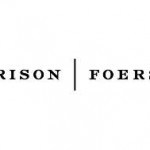By David McAfee
Law360, Los Angeles (July 21, 2014, 2:02 PM ET) — Morrison & Foerster LLP, founded in San Francisco in the 1880s, has kept its practice in California thriving through some of the most high-profile technology and life science representations in the state, including recent intellectual property litigation wins on behalf of Apple Inc., Sandoz Inc. and other top companies.
Alexander Morrison founded MoFo in San Francisco in 1883 to practice “principally in the line of corporate business.” Although its San Francisco office is still its largest with 249 attorneys, the firm has since expanded to include more than 1,000 lawyers in 17 offices in major global financial and technology centers in the United States, Asia and Europe.
With 476 of those lawyers practicing in five offices across California, MoFo has represented a broad range of leading and emerging technology and life science companies, food manufacturers and more in the state’s most closely watched trials and transactions, earning it a place on Law360’s list of California Powerhouses.
Rachel Krevans, chair of the firm’s intellectual property litigation practice group and co-chair of its intellectual property group, said IP is a key driver of growth for the firm — especially in California.
“Intellectual property is one of the firm’s largest and most important practices, and MoFo has built a full-service IP shop with an impressive bench of first-chair trial lawyers and a truly stellar stand-alone prosecution practice,” Krevans told Law360 in an interview. “We round out the practice with a tech transactions team that works closely with clients to shape their key business relationships.”
In one recent and notable IP victory, MoFo secured for Apple a $119.6 million jury verdict against Samsung for infringing three of Apple’s iPhone patents. The jury handed down the verdict, part of the two tech rivals’ highly publicized smartphone war, in May.
Nine Samsung mobile devices infringed Apple’s “quick links” patent, and three infringed its patent on slide-to-unlock technology, but none infringed the universal search or background synchronization patents Apple asserted in the case, the jury found. That verdict brought the total Samsung owes Apple for patent infringement and trade dress dilution to nearly $1.05 billion in the companies’ epic legal dispute, according to MoFo.
The verdict came after three full days of deliberation, following a monthlong trial between the fierce rivals. Apple had claimed that Samsung infringed utility patents used in 10 devices: the Admire, Galaxy
Nexus, Galaxy Note, Galaxy Note 2, Galaxy SII, Galaxy SII Epic 4G Touch, Galaxy S II Skyrocket, Galaxy S3, Galaxy Tab 2 10.1 and Stratosphere.
Last year, MoFo also scored an impressive victory on behalf of Sandoz and Momenta Pharmaceuticals Inc., Sandoz’s collaborative partner. The Federal Circuit ruled last July that several patents covering Teva Pharmaceuticals USA Inc.’s multiple sclerosis drug Copaxone were invalid, clearing the way for generic versions.
The appeals court found that five of the nine patents Teva alleged would be infringed by planned generics were invalid as indefinite because their claims contain ambiguous language. The appellate victory opened the doors for Sandoz to launch a generic version of Copaxone, which has annual sales of approximately $4 billion, as early as May 2014, more than 15 months earlier than expected, according to MoFo.
But the firm’s California team isn’t limited to litigating IP disputes. In 2013, the firm also staved off claims brought under the state’s Proposition 65 law, which requires warnings for lead at the lowest thresholds in the world, against Dole Food Co. Inc., Gerber Products Co. and 14 other makers of baby food, fruit juice and packaged fruit products.
The judge ruled that, while the companies’ products contain small amounts of lead, they were able to show that the products were below the regulatory “safe harbor” exposure level, according to Robert L. Falk, a partner in the firm’s San Francisco office.
“The reputations, brands and business models of the companies were at stake. Warning signs and labels required by Prop. 65 are frequently seen in California but almost never on foods,” Falk said. “This law carries fines of up to $2,500 per day for every single violation, of which successful ‘public interest’ plaintiffs are authorized to retain 25 percent in addition to seeking reimbursement of their attorneys’ fees and costs, so, given the sales volume of the products at issue in the case, the financial stakes for the companies were also potentially huge.”
Falk added that, if the outcome is upheld on appeal, it will set a legal precedent.
“The trial court’s heavy reliance on ‘scientifically more appropriate’ evidence should favor them in any such proceeding and potentially opens the path for other companies facing claims on consumer products containing trace amounts of chemicals to litigate more vigorously,” Falk said.
MoFo also has a global mergers and acquisitions practice with a strong presence in California. According to MoFo’s M&A Leaders Survey, the state’s transactional activity has reached its highest level since 2009.
Most recently, the firm represented Intel Corp. in its $740 million later stage investment in Silicon Valley-based enterprise data software startup Cloudera Inc.
Intel and Cloudera announced their collaboration and the equity investment in March, marking Intel’s largest “big data” center technology investment in its history. The deal is also the largest venture capital investment ever handled for Intel by MoFo, according to the firm.
In yet another large deal on behalf of Intel, the firm represented the tech giant and its wholly owned subsidiary McAfee Inc. in McAfee’s acquisition of Finnish firewall and network security solutions company Stonesoft Corp.
McAfee purchased all outstanding shares and share option rights in Stonesoft in a $389 million cash tender offer, according to MoFo, which boasts a long-standing client relationship with Intel.
Robert S. Townsend, co-chair of the firm’s mergers and acquisitions practice group, said Intel is a “core client” for MoFo’s transactional practice.
“We are delighted to have formed such a strong partnership with an iconic technology leader,” Townsend said. “The sophistication and global footprint of their transactions allows us to employ for Intel’s benefit our Bay Area and global expertise in M&A, technology transactions, IP and tax.”
In addition to the firm’s successful litigation and mergers and acquisitions practices in California, the firm also has a strong pro bono presence, according to Townsend.
“Our pro bono work runs the gamut, from class action representation benefiting thousands to individual advocacy for those otherwise without access to justice,” Townsend said. “Whether the client is big or small, we strive to anticipate their needs and deliver superior work to achieve their business goals.”
The firm has its roots in San Francisco, a city known for its entrepreneurial spirit, according to Philip T. Besirof, managing partner of MoFo’s San Francisco office.
“San Francisco is where it all started,” said Besirof, also a partner in MoFo’s securities litigation, enforcement and white collar criminal defense group. “Founded 125 years ago, MoFo is now the leading firm in San Francisco and one of the leading firms globally with roots firmly planted in the Golden State.”
The firm launched in Northern California in 1883 and opened its Los Angeles office in 1974 to serve the Southern California needs of Crocker National Bank, which was acquired by Wells Fargo & Co. in 1986. The firm’s LA office has lawyers who focus on transactional, regulatory, real estate, employment, patent and litigation services.
Since its start in the Bay Area, the firm has continued to grow in California, now with offices in San Francisco, Los Angeles, Palo Alto, Sacramento and San Diego.
Today, MoFo has an impressive lineup of attorneys across California, including a number of former politicians and judges.
The firm says that among those former officials are Shirley Hufstedler, the former secretary of education for President Jimmy Carter and current senior of counsel in Los Angeles, and of counsel Miriam Vogel, who served as a justice on the California Court of Appeal, Second Appellate District, Division One, for 18 years.
Besirof said that, while there are no current plans for expansion in California, MoFo did open offices in Singapore and Berlin in 2013.
MoFo partner Krevans, also based in San Francisco, said California is unique because it is the “undisputed national leader in technology-driven innovation.”
“The entrepreneurial culture of Silicon Valley and San Francisco produces thousands of startup
companies looking to obtain funding, protect IP, license products and deliver their products to the rest of the world,” Krevans said. “Our San Francisco and Palo Alto offices have been major contributors to the emergence of the Silicon Valley business community during the past two decades.”
Krevans, who has tried patent disputes involving products in the electronics, materials science, biosciences and medical device areas, added that California also leads the way in life science and biotech innovation.
“It’s exciting to be able to work with some of the most innovative and game-changing companies in the world, helping to protect many landmark portfolios,” Krevans said.
–Additional reporting by Beth Winegarner, Erin Coe, Ryan Davis and Sindhu Sundar. Editing by Jeremy Barker and Katherine Rautenberg.





